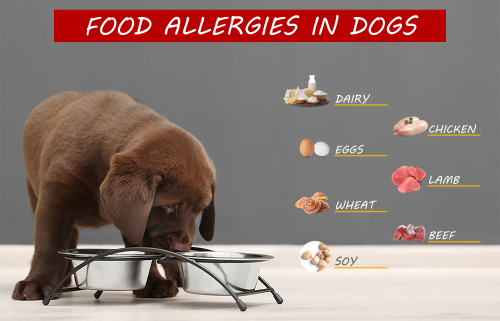Food Allergies in Dogs
Food allergies can cause various skin conditions in canines as well as chronic disorders such as indigestion, ear infections, and problems with breathing. Poultry is one of the most common food allergens for dogs. Allergies occur because of a high defense response to a protein, which the immune system perceives as an intrusive substance.
A food allergy is an overreaction of your dog’s immune system to an unwelcome protein that is present in a particular ingredient of their diet. Allergic reactions to food usually occur in adult dogs, over the age of three. However, there are exceptions, and they can affect growth if not addressed. Below is a list of symptoms to look for.
– Chronic ear infections
– coughing
– diarrhea
– obsessive licking
– paw biting
– skin infections
– skin rashes
– vomiting
– wheezing
Oftentimes, these symptoms will prompt a veterinarian to perform a cutaneous cytology to diagnose the issue. This is a procedure in which the affected skin cells are collected and examined microscopically for disease. Your veterinarian may suggest an “elimination” diet to help pinpoint the issue. If this does not work, your veterinarian may recommend a symptomatic treatment. Once the allergen has been identified, the initial course of action is the removal of the ingredient from the dog’s diet.





